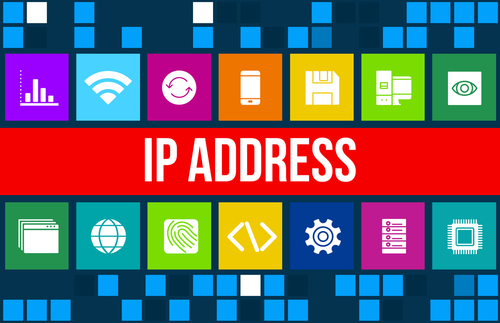
Small-to-Medium Businesses (SMBs) today find that they need to have more than one website due to conditions like the number of products or services they provide or the number of international branches they may have spread out across the world.
Now, whatever the reason may be, the question that is usually asked by businesses in such situations is whether they should use one IP address for all their websites, or if it is better to assign individual ones to every single one of them.
Well, the short answer is that “it depends.” This is because there are certain reasons and conditions that make either choice a more viable one.
Therefore, let’s see what conditions make which option a better one:
Reasons to Opt for a Single IP Address
- If a business is looking for a single billing account, then this is the better option. There is no need to keep track of which account is going to expire, how much needs to be paid or what conditions apply. There is just one all-inclusive account to monitor and handle.
- A business that has all its sites in one account can easily monitor all of them from one control panel or dashboard. This makes the sites’ administration a breeze for webmasters and admins.
- The beauty of having all websites under one host is that there is only one username and password to remember. Only admins and webmasters who have to deal with several accounts a day can truly appreciate this point. One account means no more forgetting passwords, no more getting locked out of accounts and no more having to go through harrowing password reset procedures.
- Patching and updating servers need only be done once. There is no need to go around updating servers, as everything is under one roof. This is in comparison to having to have to keep track of multiple servers as would be the case if the businesses had their sites on different machines.
Reasons to Opt for Multiple IP Addresses
- The main reason businesses would want to have separate IP addresses for each of their websites is if they wanted to keep the identities of each of their sites uniquely separate.
This would be ideal in scenarios where all or some of the sites are managed and/or need to be treated differently than one another. The reason could also be because the sites represent separate services, are located and run from different locations or are the responsibilities of sub-divisions of the business – having separate identities makes it easier for micro-management.
- Websites can be accessed using just their IP addresses. If a business or its websites’ administrators find that it is important to find the websites using both their URLs and their IP addresses, they usually opt for unique IPs.
Unique IPs could be helpful for troubleshooting any problems with the sites or when access is needed during domain name propagation periods when the name resolution might not have yet broadcasted the URL which makes it inaccessible using that method for a while.
- Another main reason a business might require unique IP addresses is if FTP access is deemed necessary. When the business needs to upload data or transfer files remotely, FTP is the way to go as it does the job well.
- A good way of building customer trust and keeping their data safe and secure is to implement SSL certificates. But businesses that want to install SSL certificates must have websites with unique IP addresses – it is a requirement.
- Although the jury is still out on whether or not having a unique IP address directly affects the way search engines view websites and then decide how to rank them in their Search Engine Results Pages (SERPs), there is no arguing that having unique IP addresses does indirectly contribute towards improving a site’s SEO rankings.
For example, a site with its own IP address doesn’t run the risk of being blacklisted and blocked like in the earlier scenario we had seen where a rogue website caused headaches for all its neighboring sites – this means constant and lengthy uptimes, non-stop visitors help improve a site’s SEO with search engines.
- Businesses that have a high number of visitors – or are soon expecting a radical rise in traffic – would be better off with their own unique IP addresses and even dedicated website hosting. This avoids incidents like crashes or denials of services due to over-utilization of resources.
A website with its own resources will be much more able to handle such unexpected surges of traffic.
In conclusion, whether or not businesses should go either way when deciding to have one or more IP address for their websites basically depends on how much they are willing to pay and whether or not they have the large amount of traffic that would justify the extra cost that comes with multiple IP addresses.



















